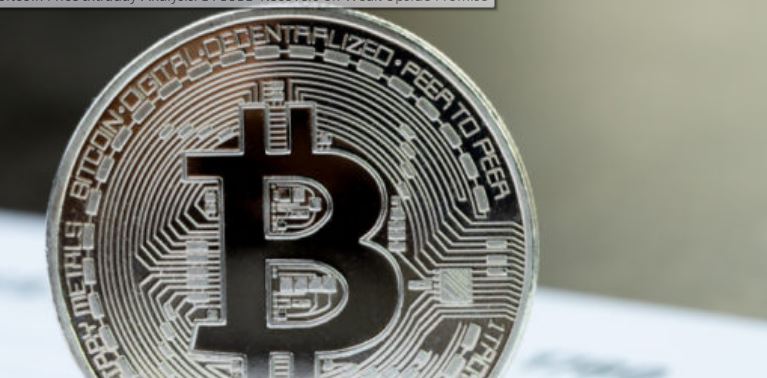Sea Change? Deloitte Is Tracking Ships’ Certificates with Blockchain

Deloitte is taking non-financial applications of blockchain technology into uncharted waters.
To record the inspection certificates for ships, oil rigs and the like on a private, shared ledger, the consulting firm’s blockchain lab for Europe, the Middle East and Africa recently partnered with DNV GL, one of the world’s largest classification societies.
Such companies certify that vessels and offshore structures meet acceptable standards for safety and environmental impact. But, the certificates they issue can be forged, potentially undermining trust in the system. Further, checking that a certificate is real is a slow, cumbersome process.
Deloitte and Norway-based DNV GL see blockchain technology as the answer to both problems.
Their solution creates a digital ID of each certificate that is stored and accessed on a private blockchain. The decentralized approach is seen as a way to discourage fraud or otherwise tampering with the documents.
Lory Kehoe, Deloitte’s EMEA blockchain lead, explained:
“Instead of one record being held on one server, it’s held over many, many systems.”
Digital transformation
The existing system for issuing certifications had been in need of digital transformation, said Kehoe. “Some parts were manual, some parts weren’t exactly digital.”
One problem with the legacy system is that users need to go to a company’s website or send an email to check a certificate’s authenticity. This can now be done instantly with a blockchain, explained Renato Grottola, director of global digital transformation for DNV GL, which formed from a merger between DNV and Germany’s GL in 2013.
He told CoinDesk:
“Anyone can, by scanning the QR code on the certificate, check its validity and data. With the one-to-one connection between the certificate and the blockchain, verification is instant and easily done with a mobile device.”
“As the original data is stored and updated in the blockchain, it will quickly reveal whether a certificate is authentic or not,” he said.
The solution was officially deployed September 23, with 90,000 certificates currently on the private blockchain.
“It is quite early after the deployment, but feedback received so far has been positive,” said Grottola.
Protecting reputations
DNV GL’s business is based on trust and authenticity with industries trusting its certificates to be what they say they are – but that is an increasingly difficult balance to maintain.
“You can spend a lifetime building a reputation and it takes seconds for it to fall apart,” explained Kehoe:
“All it takes is one or two scenarios where DNV GL have put their name to something and another company in another part of the world replicates that and DNV GL’s name gets tarnished.”
It can take another lifetime trying to disprove those falsehoods and rebuild a reputation. Kehoe said he believes that Deloitte’s blockchain deployment will prevent that.
“In the world of certification, other companies presume we’re looking at this,” said Kehoe. “If I was in the business insurance industry myself beyond DNV GL, I would have been looking strongly at blockchain.”
The International Association of Classification Societies (IACS) is an organization whose members include DNV GL. A spokesperson told CoinDesk that it is currently neutral on blockchain, saying: “IACS does not have a position on blockchain technology and has not discussed this matter to date.”
However, IACS recently appointed DNV GL’s CEO, Knut Ørbeck-Nilssen, as its new chairman and upon his appointment, he spoke of the need to prioritize digitization.
London-based Lloyd’s Register, a competitor of DNV GL, on the other hand, said it is “is actively working at real-world applications of blockchain and distributed ledger technologies with our clients and partners.”
A spokesperson for Lloyd’s Register added:
“We believe blockchain and distribute ledger technology has wider applicability in industrial applications, especially around increasing transparency in supply chains and around safety and reducing risk.”
Grottola said DNV GL was aware that some its competitors are looking at blockchain initiatives and it was “keenly observing” new entrants in the market.
Growing trend
DNV GL’s blockchain solution is part of a growing trend of non-financial services firms turning to the technology.
Deloitte’s Kehoe said he has seen a notable increase in the number of such queries over the last nine to 12 months, and that clients are now coming to Deloitte with a greater understanding of blockchain technology.
“The work we’re doing now is kind of skipping the [proof of concept] phase because our clients understand the technology,” he said. “They’re coming to us with use cases with a clear problem to solve.”
He explained:
“We’re not talking about experiments anymore in dark rooms where people are playing with this technology. It’s now all about how do we integrate the technology in a meaningful way so that it solves the problem – it creates an opportunity, helping companies stay relevant, I think that’s a very important point too.”











Responses